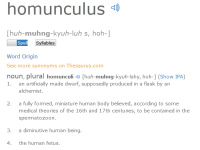ruby sparks
Contributor
I'm only saying that internal processes are physical and must always follow the event, the egg slipping from your fingers, etc, and the internal processes themselves, being physical, must also have a progression, albeit measured in microseconds and not being linear, the brain being a parallel rather that a linear information processor.
Yeah. It was just that you only mentioned external, visual stimuli in your initial post.
To explore it a bit further (and I do not know where it is going) the egg doesn't have to be dropped. You could, while picking it out of its carton, briefly imagine it dropping, in your 'mind's eye', and this would (seem to) result in you being more careful while handling it, so that it didn't in fact drop (like it did the last time you made an omelette). This conscious reminder would come, very briefly, to the 'cartesian theatre experience' from memory, of course, and I'm not saying it's free will, obviously, and I'm setting aside whether or not thoughts are physical etc. But (and this may overlap with at least one other thread topic, possibly two) did the imagining in any way affect how you handled the egg?
We could say that for a practiced omelette-making-chef, the reminder from memory might not have to pass through consciousness, it could have been learned sufficiently often to mean that he or she will handle a raw egg with extra care 'automatically', so let's say you're more or less a complete novice at egg-handling, such as a small child.
Last edited:

